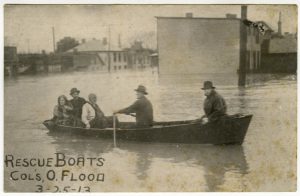 I continue to live my recovery. The word recover (from Old French meaning ‘to come back’) promises a return to the way things used to be. But in the case of serious illness it feels more like approaching one’s flood-damaged home than returning from 2 weeks in Hawaii.
I continue to live my recovery. The word recover (from Old French meaning ‘to come back’) promises a return to the way things used to be. But in the case of serious illness it feels more like approaching one’s flood-damaged home than returning from 2 weeks in Hawaii.
The one who returns is not the same as the one who departed.
This body does not belong to me. It was given into my keeping: a shell, a bag of bones; increasingly fragile and uncooperative. It may look stable to the untrained eye but continues to deteriorate with each moment. “We age so completely and in so many different ways,” says stem cell biologist Derrick Rossi*. “We are programmed to die.”
What, I wonder, is the full impact of a heart attack … of the metal tube installed inside my artery … and the 9 medications I take every day? The cardiologist carefully explained the technical aspects but made no mention of existential issues.
… one of the main features in the coronary artery disease patient’s personality is the concussion suffered by the loss of omnipotence and the feeling of having limitations. Anxiety emerges as both a physical (death), and a psychological threat (loss of freedom, meaninglessness). Despite varying from one individual to another, there is in all a common feeling, which is the threat of loss of life, of family, of socioeconomic status, etc. Such feelings generate fear, anger and guilt.**
In the great scheme of things there’s nothing special about my experience. Others are in similar and more complex situations. I could name at least 13 people in my circle who’re living with cancer: some in the precarious state of remission, some recently diagnosed or in mid-treatment, some close to the end of the line, and a few grieving the loss of their beloved. I often wonder how they’re coping. We may be able to share aspects of our plight with each other, but the most intimate aspects — fear, loneliness, grief, anger — remain largely unnamed.
* http://www.the-scientist.com/?articles.view/articleNo/42280/title/How-We-Age/
** Capitão, C. G. (2015). When the Mind Affects the Heart. Psychology, 6(16), p. 2137.

Beautiful soulful writing, Peter. Such a pleasure to read.
When Gandalf asks Bilbo to take the ring to Mordor, Bilbo plaintively asks “but can you guarantee my safe return?” Gandalf says “No, and if you do return you will no longer be the same person.” Thank you for sharing. I hope as you return to your flooded home there is at least one dry, cosy,intact upstairs bedroom where you can relax while the crews get the downstairs clean and livable.
As well as frailty, I think our body–with a little help from our medical friends–has remarkable restorative powers. Perhaps, more significant than being programed to die, we are programmed to wake up!
Sending you love and rooting for you.
Forever Pollyannaish, Arnie
I wanted to second Arnie’s response. I experienced an attack twenty years ago. One’s body is programmed to recover as well as to die, so do not give up hope. The important thing, at least for me, was the resolve to allow myself to heal. I took up Buddhist meditation shortly afterwards and also changed my diet completely, became a vegetarian, etc. Perhaps you are already there in those respects. Again just from my own recollection, be certain not to let down your social interactions and to enroll in a cardiac rehab program as soon as your doctor OKs it. This will not only strengthen your heart, but restore both physical and mental confidence.
Excellent comments, Tom.
Dear suffering teacher, in the memorable words of Bette Davis “old age ain’t no place for cissies”. We have to be very courageous every day. It’s good also to have young friends, blithely unaware of what we are going through. And so, the question returns – how to move away from suffering? Show me the way. Be well. Peace and love from here.
Peter hopefully a return to your regular schedule will help you heal. I know we are all grateful and happy to have you back leading us. Thanks for sharing.
Paul
its good to talk about all the stuff the ‘medical profession’ isn’t normally bothering to engage in with their patients – probably just as well perhaps but i think there’s a disconnect there too – I hope you feel better bit by bit – so glad i had a chance to visit in the beautiful respite home you shared with peeps on the little island before you moved to Vancouver Island. the beautiful herb and flower garden abuzz with bee’s and hummingbirds and the daily aroma of home cooked bread, the hammock and views – the quiet time especially after 6pm …wonderful, restorative … and thanks for letting me eat handfuls of the delicious walnuts throughout the day from the bread making room !!! all the best to you Peter – Lana